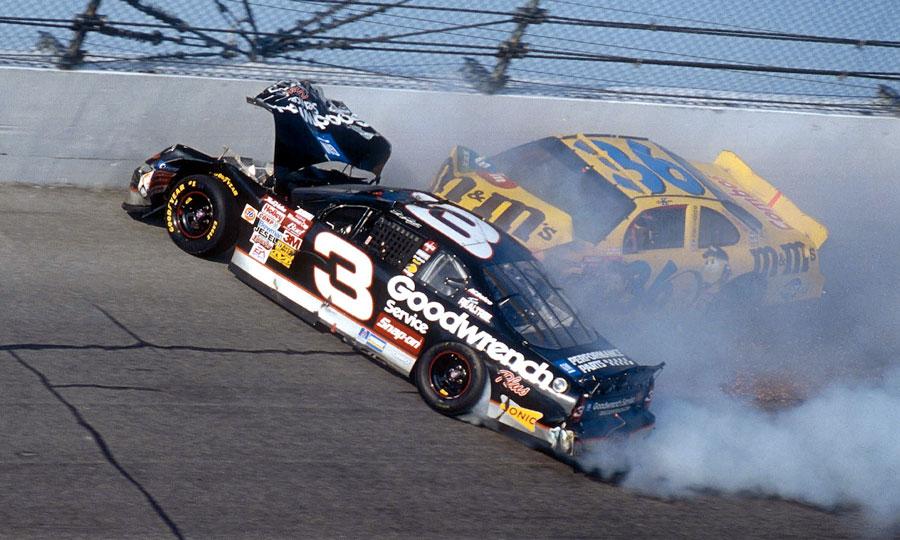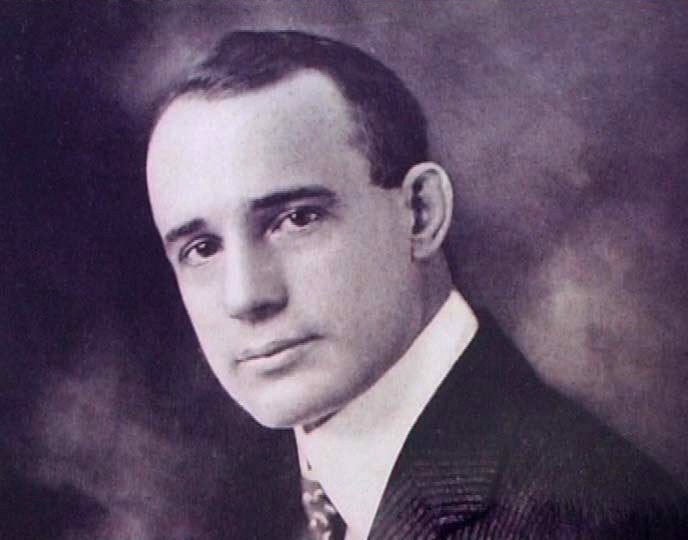The incompetent submitters are dropping off, week by week. Even better, a new roster of outspoken ones continues to gradually supplant them. Who knows, within a few decades the Carnival of Wealth might be good from top to bottom. We could hit some rough spots today, but the road looks smoother than ever. Let’s begin:
Newcomer Rob Aeschbach wins for most striking post title: Why You Should Be Doing Estate Planning at the DMV. And not just because you’ll have plenty of time on your hands. Rob regales us with a tale of Jenny, Stevie and Bruce, at least one of whom used to work on the docks/Unions been on strike/He’s down on his luck…
It’s tough. So tough.
(Note: CYC’s home state lets you renew your vehicle registration online, but doesn’t let you use PayPal. You can use something called Pulse Pay, and something else called NYCE, and you can pay via “e-check,” but not by using the largest payment processor in the world.)
Another ex-military guy with an aerodynamic haircut and a flair for both English composition and personal finance wisdom is Jason at Hull Financial Planning. You know how a car dealer would rather lend you money for the next 5 years than take a haggled-over check today? Jason says the same phenomenon happens in investment planning. If you honestly believe that paying 1% of your net worth to a professional every year is a better deal than paying a flat fee to someone with Jason’s skills and qualifications, the good news is that 1% of your net worth is never going to be all that much.
Do you think Canadians are boring and monotonal ciphers who don’t understand dynamism? Well, you’d be right. You’d also be unfairly stereotyping Sandi Martin at Spring-Personal-Finance, another long-overdue new visitor to these parts. As Sandi puts it, being frugal for its own sake is stupid. You don’t use coupons just so you can say, “Witness this 17¢ I saved.” Ben Franklin was a genius, but “A penny saved is a penny earned” was his 2nd-biggest clunker, right after “Rarely use venery* but for health or offspring.” Unless you can clip coupons at a rate that makes it more lucrative than a job, and derive some mental stimulation out of it while you’re at it. That sound you heard was the bruising of the egos of 10,000 repetitive bloggers, ready to call Sandi hurtful and worse.
Hey Sandi? Ask Paula Pant at the former Afford-Anything to tell you the story of how much it can cost to eliminate a hyphen. (UPDATE, 5/27/13: Sandi lost the hyphens.) Our defending Woman of the Year stops by to inspect her realm and to offer what she calls the weirdest personal finance advice on Earth: Paula thinks you should buy as many Powerball tickets as you can afford.
Just kidding. She said “weirdest,” not “worst.” Read for the details. (That’s what we in the business call a “tease.”)
More gold? Is this our birthday or something? PKamp3 at DQYDJ.net brings back one of our favorite features, one so brilliant we wonder why no one else had thought of it first. If you look at option prices, both call and put, for a particular stock then you should be able to figure out the stock’s eventual price. Is this the ultimate arbitrage, free money for the making? The answer seems more likely to be yes than no.
Glen Craig at Free From Broke explains credit scores. Which sounds like overly basic advice, until you remember that there are tens of millions of Americans whose awful payment histories indicate otherwise. In honor of the recently deceased Dr. Joyce Brothers, let’s mimic those asinine true/false quizzes that used to run in her weekly column:
1. When you have bills to pay and a deadline to do so by without incurring penalties, you should carry a balance. TRUE FALSE
We’re going to miss her.
It’s getting really hard to make jokes about the quality of the posts we’ve been receiving, and Dividend Growth Investor isn’t making it any easier. He defends himself against readers (his, not ours) who say he’d be crazy if he didn’t cash out when a stock undecupled in value. DGI gives his explanation and his long-term strategy. Comes with a chart!
From the splendidly named Fitz Villafuerte, how to grow your business and what sequence events should take. Don’t spend tons of money on a capital investment (say, an industrial quality pasta maker) if your clientele hates pasta. Or if your company does auto detailing. Because that wouldn’t make sense.
(Sigh) Dude, you’re a mechanical engineer. It’s people like you who are going to help us thwart the dawn of the Chinese Millennium. But Jon Haver at Pay My Student Loans, stick to materials science and thermodynamics. Because your personal finance advice is terrifying. Jon thinks you should take out some 7.9% student loans and cross your fingers that the lenders (or federal legislators twisting the legislators’ arms) might forgive those loans sometime in the future. Apparently it doesn’t matter if you’re working on your M.A. in drama, borrowing money to finance your education may be swell. Not a word about getting an associate’s degree and learning how to fix refrigerators or do something else worthwhile.
Michael at Kitces.com questions conventional wisdom, and thank God because if no one did that we wouldn’t have human-powered flight nor Scientology. Michael wonders if financial planners are really serving their clients’ best interests when using “bucket” strategies – a bucket of bonds for the short term, money-market funds for the middle term, stocks for when you’re sitting around the retirement home wondering why your grandkids never call. But is it realistic to never touch the “long-term” securities just because of a plan you devised decades earlier?
Dammit. When a submitter singles us out for praise in his submission email, and indicates that he’s clearly a fan, we’ll try to find something positive to say about his post. (clenching teeth) Here goes. Paul Latta at Each Tiny Moment sends us something titled “Gambling is For Chumps”. Unfortunately, the title continues. “…Unless They Use This Secret.” Paul thinks you should join a players club and get cash back every time you play. It’s the casino equivalent of a Discover card, and we maintain that you’re far better off not knowing what a players club is in the first place.
Paul does give us an opportunity to bring up a related point, though. As CYC’s dry-season headquarters are in Las Vegas, gambling is something of a familiar activity to us. That doesn’t mean we partake, of course, but we’re surrounded by it. To the point where we’ll eat dinner at casino restaurants; and forgo the big discounts that they offer to players club members, because we aren’t. Yes, membership is free. So is that first childhood cigarette. We’d rather pay a few bucks more and not deal with the emails and direct marketing offers, thanks. Irrational? Perhaps. Or maybe that’s the price we’ve chosen to affix to not being in the database.
Harry Campbell at Your PF Pro explains how to build credit when you’re young and don’t have much of a credit history other than cards. His suggestions are sound, given that it’s 2013 and the Fair, Isaac & Co. credit scoring formula still hasn’t leaked. Incredible.
You’re too stupid to save for retirement. That’s not us talking: that’s from generations of politicians, dating back to history’s greatest monster, Franklin Roosevelt. Thus Social Security, the Ponzi scheme that will inevitably end up as such schemes do. Still, Social Security gives Kristine McKinley (now there was a president, except for the tariffs) at Social Security Retirement Income the chance to make an alluring infographic about how to maximize the post-career scratch you’re entitled to.
We’ll close things out with our Franco-Guatemalan heroine, Pauline Paquin of Reach Financial Independence. (Not to be confused with Franco-Guatemalan heroin, which averages around $200 a gram and is even farther out of our reach than Pauline is.) This post is her usual great stuff, and we couldn’t summarize it any more pithily than she did. In her second language, no less:
I have been wearing the same jacket since October 2010. And my net worth has grown 87% since then. My friends don’t seem to see the correlation.
Thanks for coming. See you tomorrow.
*Venery = sexytime




